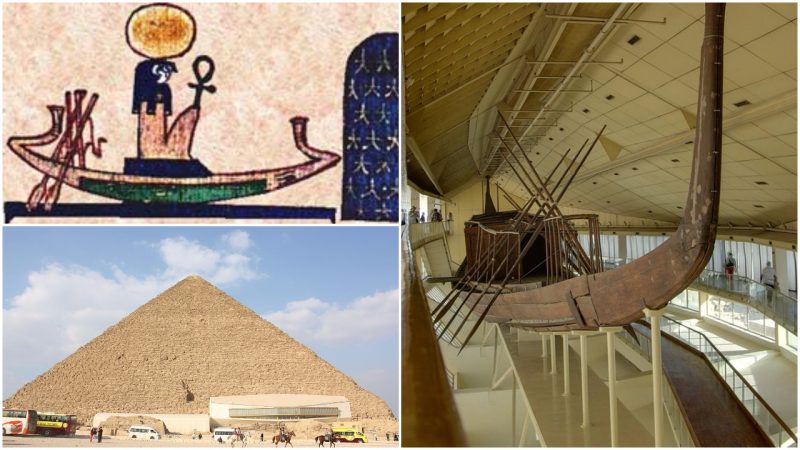Egypt is one of the most mysterious realms on the planet. Archaeologists have always been fascinated by the findings they have unearthed along the banks of the Nile and in the vast desert.
Among the many dazzling discoveries were the Ancient Egyptian solar ships and boat pits found at some sites in the country. The most famous boat of all is the Khufu ship, restored and preserved in the Giza Solar boat museum on the south side of the Great Pyramid of Giza.

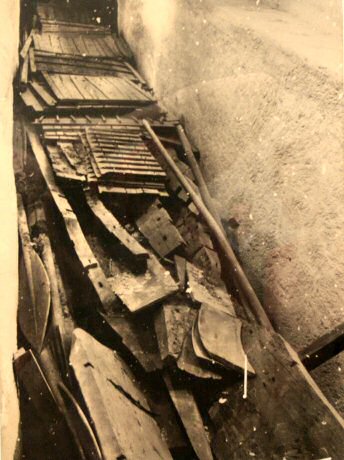

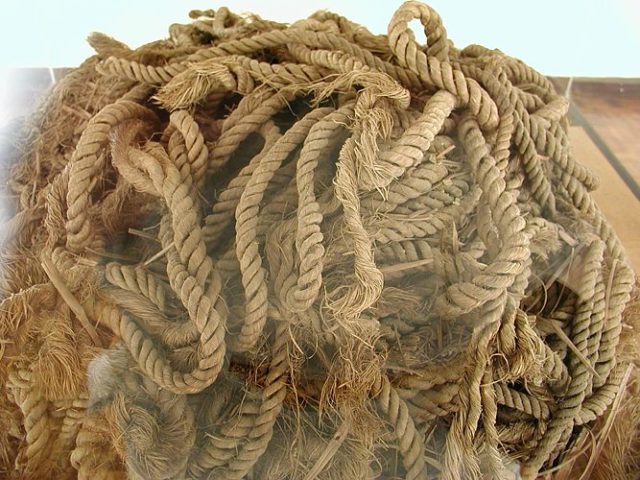
The Khufu ship, built for Khufu (King Cheops), was one of the two discovered vessels in 1954 by the Egyptian archaeologist Kamal el-Mallakh. Seed into a pit at the foot of the Great Pyramid of Giza, the Khufu had stood still since around 2500 BC. Almost 95% of it was made of Lebanon cedar. With great care and thoroughness, the 1,224 pieces of the vessel were reassembled over the course of not months, but years, and due in large part to the exceptional efforts of Haj Ahmed Youssef.
Haj Youssef, a chief restorer at the Egyptian Department of Antiquities, needed to learn a lot about Ancient Egyptian boat-making for the boat reconstruction, and he studied old reliefs and scrutinized many little wooden models of ships and boats found in tombs. In the hope that modern Egyptian shipbuilders might have cultivated methods that would give an idea how Ancient Egyptians built their ships, Haj Ahmed also visited some Nile shipyards before reconstructing Khufu.
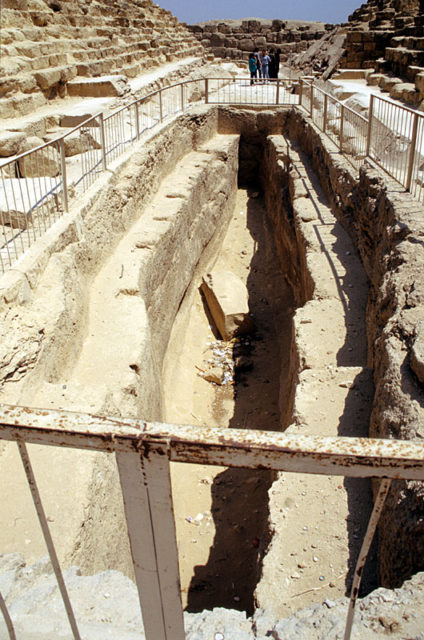
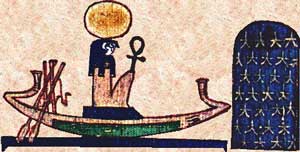
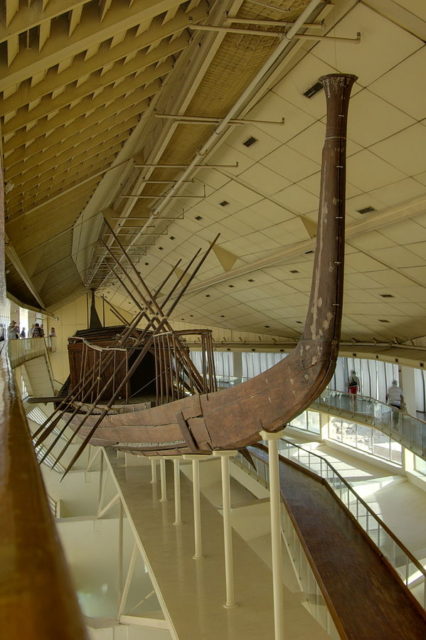
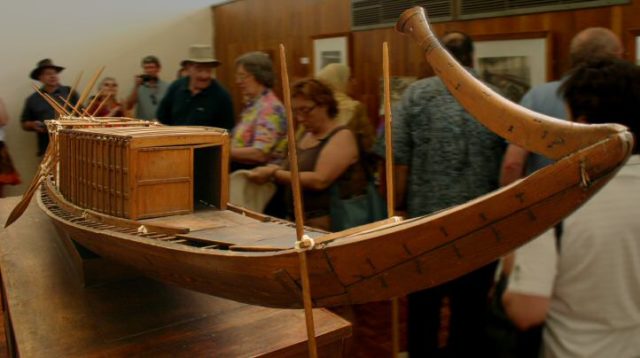
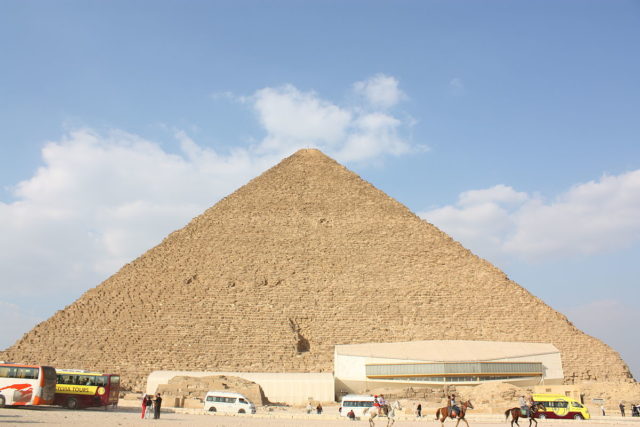
Full-sized ships and boats have been found buried at several locations close to Ancient Egyptians temples and pyramids. However, the precise function and the full story behind these ships, like many other things about Ancient Egypt, will never be fully understood by our civilization. After all, that’s why Ancient Egypt is often called the greatest riddle of all.
It seems likely that the Khufu was a solar ship, a mythological representation of the sun riding in a boat. These boats are also called “solar barks” or “sun boats.” “Atet” was the most famous sun boat of them all, belonging to Ra, the Egyptian god of the sun. Given this context, the Khufu Ship may well have had a symbolic function as a sun boat, carrying the king to the afterlife.
What makes the Khufu ship so special, as well as being dedicated to a pharaoh, is that it is one of the oldest, the largest, and the best-preserved vessels from antiquity. Further described as a “masterpiece of woodcraft”, it is also acknowledged as the world’s oldest fully preserved ship. If placed in a lake or river, it would have no problem in being able to sail. Despite its exemplary design, it was not intended for sailing or any other use on actual water. Dedicated to Khufu (King Cheops), the second pharaoh of the Fourth Dynasty of the Old Kingdom of Egypt, the Khufu ship was most certainly a ritual vessel.
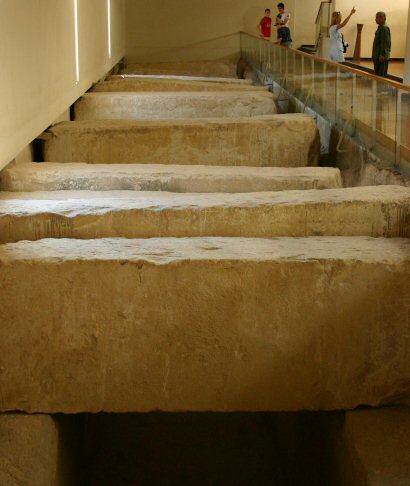
143 feet long and 19.6 feet wide, Khufu, along with the rest of the buried Ancient Egyptian ships, was part of the extensive “afterlife” goods that were provided for deceased kings in the ancient days. Since 1982, the vessel has been on display at the Khufu Boat Museum, a small modern-looking building alongside the Great Pyramid of Giza.
Its discovery is considered among the most significant in relation to Ancient Egypt. A documentary film entitled “Egypt’s Ten Greatest Discoveries” hosted by the Egyptologist Zahi Hawass and shown on Discovery channel, features the Khufu Ship discovery next to those of the Tomb of Tutankhamun and the Valley of the Golden Mummies.
